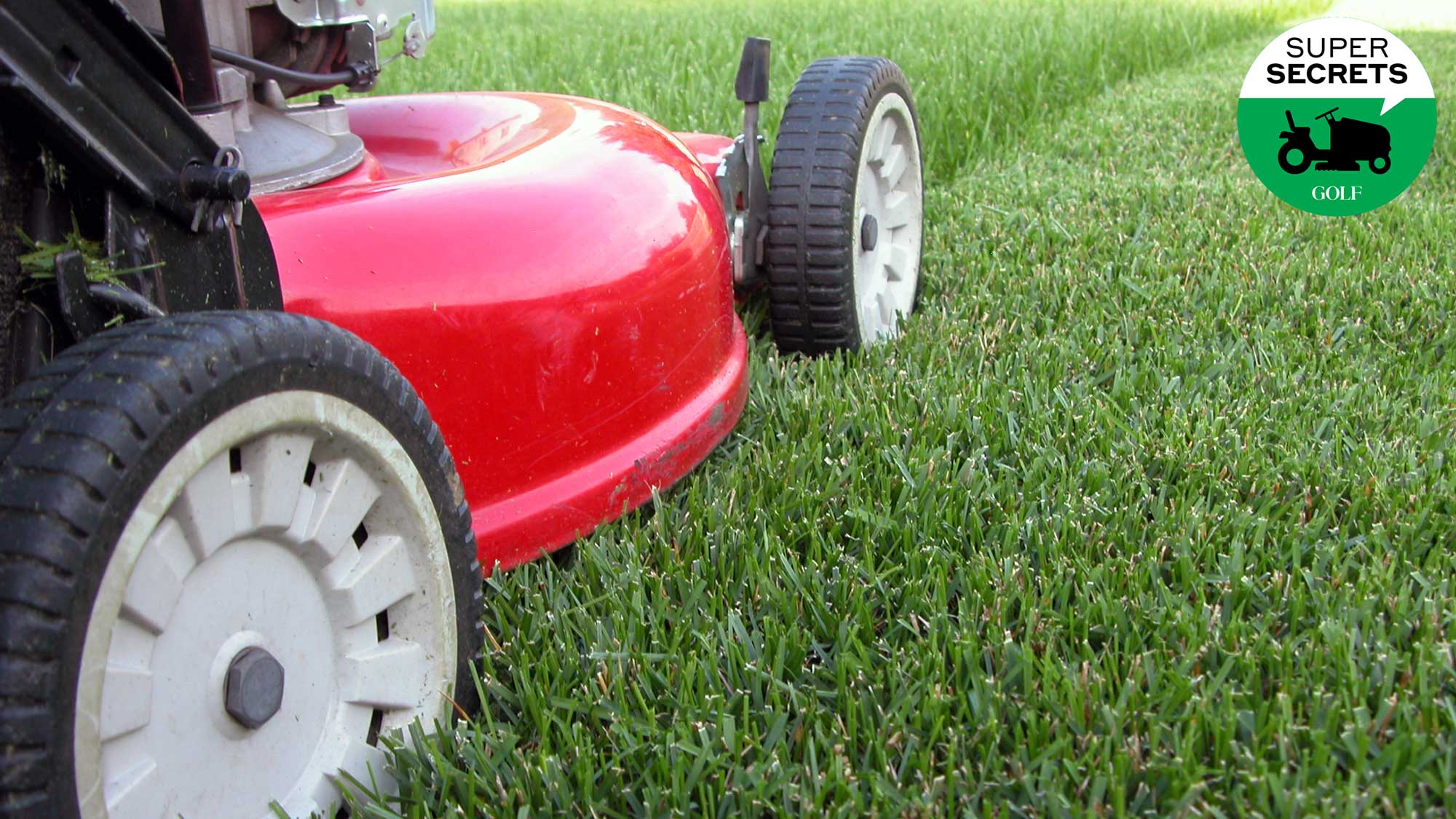Welcome to Super Secrets, a GOLF.com series in which we pick the brains of the game’s leading superintendents. By illuminating how course maintenance crews ply their trades, we’re hopeful we can not only give you a deeper appreciation for the important, innovative work they do but also provide you with maintenance tips that you can apply to your own little patch of paradise. Happy gardening!
If you’re in the market for a new lawn mower, let’s cut right to it. You’ve got a lot of choices. How should you decide? Shane Conroy is a former assistant superintendent who now serves on the field staff in the Great Lakes region for the Golf Course Superintendents Association of America. Here are four questions he suggests you consider as you’re busy shopping around.
1. What’s your budget?
Like many things on wheels, mowers can be simple or souped-up. The myriad designs have prices to match. What counts as expensive is a matter of opinion. If you want to spend a few thousand bucks on a mower, you can do it. But that’s probably excessive. For the average homeowner, caring for a quarter-acre lawn or smaller, Conroy says that $300 to $400 ought to get you a mower that does the trick.
2. Push or ride?
On the course, push-mowers are used mostly around the clubhouse and other small areas with hard edges or sharp turns. Conroy says he probably wouldn’t want to push-mow more than a quarter-acre, especially not on land with lots of ups and downs. But the decision comes down mostly to your appetite for yard work and the free time you have for it. If you have a vast estate and like getting in your steps, feel free to go with a push-mower (most these days are self-propelled, so they don’t require all-out exertion). On the other hand, if you’ve got a modest plot but still want to pretend that you’re Arnold Palmer, motoring around on the back forty, don’t let anyone dash your dreams.
3. Electric, gas or battery?
Today’s lawn mowers are more sophisticated and lower maintenance than the ones you likely used when you were a kid. Many gas mowers, for instance, can keep going and going without ever calling for an oil change; all they need is a top-off now and then. Batteries, meanwhile, have gotten more powerful and affordable. Conroy has come across lithium battery-powered mowers that can run for up to 45 minutes, plenty of time to mow a small lawn. Whatever you do, Conroy suggests that you keep it cord-less. Who needs all that extra maneuvering around?
4. What about accessories?
When you buy a mower, you can also purchase a lot of extras, from covers and deck scrapers to drag harrows for leveling dirt and gravel. Give some careful thought as to whether you need them. Most mowers nowadays come with built-in bag and mulching functions. Which reminds us: Conroy recommends that you use the latter, as it turns cut grass and fallen leaves into nutrients for your lawn.
